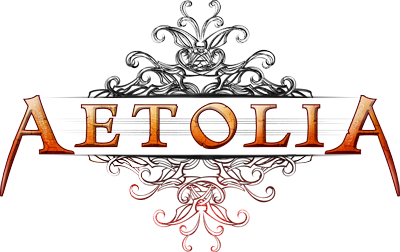Aetolian Game News
A scholar's guide to debate
Written by: The Storm Shepherd, Omeg Tyrell
Date: Thursday, March 10th, 2005
Addressed to: Everyone
Greetings citizens of Sapience,
In light of the recent interest in debating on this public forum as
shown by some, I shall attempt to put forward a set of basic rules and
structures that apply to forms of scientific and intelligent debate, as
put forward by any institute of learning. Of course, as today's public
forum is already far too busy, and this post will undoubtedly prove long
and tedious, please feel free to skip ahead, however, if you are one of
those that frequently joins in on the various debates held here on
public, please take some time to review these simple standards, as they
might benefit you greatly.
First of all, a debate is a structured swapping of arguments over a
single or set amount of theses, with as goal either to increase the
wisdom and knowledge of all involved, or to sway a group or person to
your way of thinking. A combination of these two goals is common as
well. To construct a good argument, several ways of building are
possible, none are explicitly wrong, though some might be more
appropriate in certain situations and of course, personal preference
also has a great influence on the construction of an argument. However,
whatever structure of argument one is building, it is important to keep
certain things in mind.
Any statement made by a writer always needs to be accompanied by one or
more appropriate arguments. The more arguments a statement is
accompanied by, the stronger the case of the arguing party will become,
and the harder it will be for the opposing party to find counter
arguments. When trying to argument a case, it is important to stay as
objective as possible, subjective arguments, while very convincing to
the writer, are based on morals and values that the opposing party might
not agree with and as such these arguments will be void. Note that to
people who hold similar morals and values, such arguments can be very
convincing, but trying to argument someone's entire basis of moral
values is a long and tedious process that will quickly get very long,
which is something that should always be avoided. Objective arguments on
the other hand are facts that cannot be denied by the opposing party and
as such, they will give meaning and value to the statement.
When trying to argument a case, it is also important to keep different
statements away from one another, having statements close to one
another, while sometimes very relative, will often lead to confusing
arguments and might even cause the writer to undermine his own case,
just because too many arguments are presented in a very disorganized
fashion. It is best to finish trying to argument a first statement,
before taking up a second.
Another point that should carefully be avoided is repetition of
statements and arguments, while repeating a statement or argument might
give a written work a bit more volume and character, such tricks will
convince the reader that you have run out of arguments for your
statement. Even if this is true, it is often better to simply present
the arguments available then to repeat the ones already stated, this
will come over as professional and structured.
One of the worst things a writer can do his own argument is result to
unbased personal insults. This is something that will greatly lower the
reader's opinion of the writer because of several reasons, not least
among them the subjectivity of the statement and the complete absence of
arguments. In such cases, should you really wish to blacken someone's
reputation (though still ill advisable, readers will think better of you
if you keep the conversation clean and objective) it is always advisable
to simply present the arguments without a statement and let the reader
draw his own conclusion. Subjectivity on the writer's part will only
convince the reader that he is being swayed to an opinion that is not
truly his own.
For the sake of keeping this post within readable limits, I shall stop
my ramblings here, I hope these guidelines will be of use to those that
frequent the public board and may result in a rising of the standard of
discussion across Sapience.
Sincerely,
Omeg Tyrell
Penned by my hand on the 1st of Haernos, in the year 152 MA.
